

Consider a gift annuity with the Northwest’s first Law School
If you are 60 years or older, an alum or friend, you can transfer money from a maturing CD — or any other source — to Willamette University. In return you will receive:
• A secure lifetime income at a competitive
fixed rate (see sample rates at right);
• A charitable income tax deduction
right now;
• A reduction in your taxable estate; and
• A warm, confident feeling from knowing
that when you are gone, your gift will
benefit the law school and generations of law students forever.
Learn more
Please contact us directly:
• Steve Brier
Associate VP for Gift Planning, WU
503-370-6022, sbrier@willamette.edu
• Mike Bennett ’70
Director of Development
WU College of Law
503-370-6761, mbennett@willamette.edu
4.4% TO
and higher
Charitable Gift Annuity Rates
Dear Alumni and Friends,
It is with great pleasure that I write to you as the new dean at Willamette University College of Law. We begin our 130th year by both congratulating one of our own, newly elected Washington Gov. Jay Inslee, and by welcoming the class of 2016. While meeting both alumni and students during the last few weeks, I have had the opportunity to reflect on the path from nervous first-year student to highly successful alumnus. I have heard how vividly our alumni recall their first classes, first jobs, and their then-uncertain futures, and I can’t help but think of these stories when I see our current students. It is a privilege to see this year’s first-year class begin their own journeys to similarly impressive careers that will make a real difference in the world.
Later in this issue I have an opportunity to talk about our priorities at the law school. Because I cannot say it enough, however, let me mention the two most important priorities here. First is the placement of our graduates in meaningful, fulfilling jobs. Although the class of 2012 did extremely well, our work on placement is never done. We need your help. When your firm or office is hiring, please interview Willamette graduates; when you hear of jobs elsewhere, please let us know. Our students leave Willamette well-prepared to practice law, many with meaningful experience already under their belts, and all of them ready to meet the challenges of practicing law in the 21st century. But their success depends on our alumni and other friends, and we appreciate your support.
Secondly, we at the law school want to reconnect with our alumni and friends outside the school, including many we may have lost touch with over the years. Our students come here to enjoy a small school with a student-focused learning environment, but also to join a large yet close-knit family of alumni. We want Willamette to be a part of your life throughout your career and beyond, not just a part of your past. I have had the privilege of visiting many of your offices and homes in my first few weeks, and I am so impressed by your hospitality, your pride in the school, and your readiness to make things happen. And for those of you I have not yet met, I hope we can get together soon. Our students will go exactly as far as our alumni take them, so please stay involved.
Thank you — it is my great pleasure to be here! I look forward to working with you.

Warmly,
Curtis Bridgeman... our work on placement is never done. We need your help.
A Place of Their Own
 by
by

An Up-close View of Immigration
Alumnus Teuta Norman recounts her past as she helps others today.
At the Intersection of Law and Politics
2L Colm Willis is looking to craft laws that will protect the unborn.
Dean Curtis Bridgeman
Editors Lisa Grace Lednicer
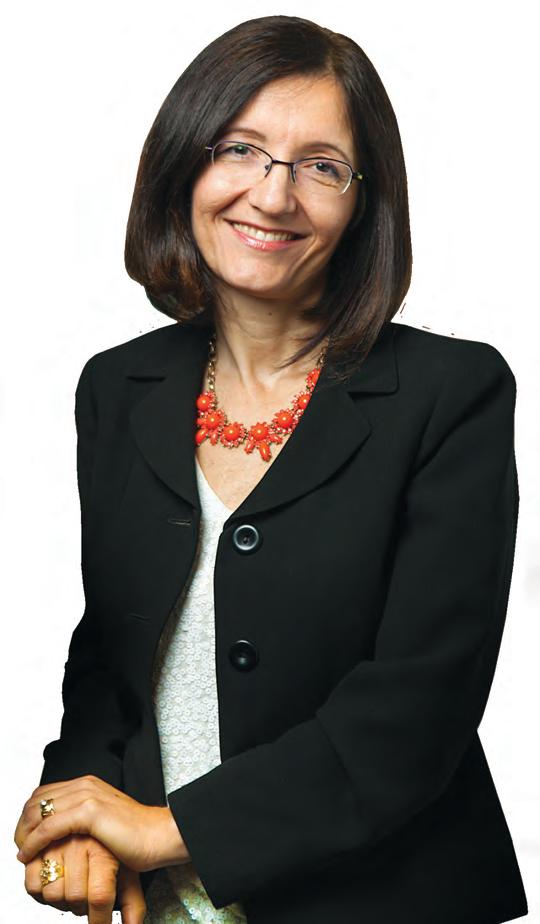
Graphic Designers Susan Blettel Emily Oliva Mike Wright

Class Action Editor Cathy McCann Gaskin JD’02
Photographer Frank Miller
Willamette Lawyer is published by Willamette University College of Law for constituents of the College of Law, the first law school in the Pacific Northwest.
Send correspondence to: Willamette Lawyer
Willamette University College of Law
245 Winter St. S.E. Salem, OR 97301
willamette.edu/wucl
This publication is partially supported by contributions to the College of Law Fund.
Copyright © 2013 Willamette University College of Law
At the Intersection of Law and Politics

Colm Willis, director of Oregon Right to Life’s Political Action Committee, can run a campaign and staff committee hearings. Now he wants to learn how to craft laws protecting the unborn.
Willamette second-year law student Colm Willis credits his Irish heritage with his love for children. His father talked to him in Gaelic; he sung Willis the same songs that his own parents had sung in Ireland. Willis studied the language at the National University of Ireland, and he spent time in Irish villages where the residents only spoke Irish. From that cultural immersion, Willis says, he got the idea that children are blessings.

“It’s different from America,” Willis says. “A lot of times, children here are seen as burdens, or a bad thing. My parents used to tell us that every child is a gift; every child is enough.”
Willis developed an interest in the politics surrounding abortion during college, where he began attending pro-life rallies in Boston. A friend of his who worked in the U.S. Senate convinced Willis to apply for a job there, and he became a research assistant for the Joint Economic Committee at possibly the most exciting time to be there — in the midst of the economic collapse of 2008.
“I worked with very intelligent economists and broadened my view of the world,” he says. “But some of it didn’t seem quite right to me, using tax money to keep all these investment banks solvent. It got me interested in who these people were who made decisions. How do they get to make these decisions?”
Next stop was the campaign trail. Willis became a field director for the Wasinger for Congress campaign, raising $15,000 to help get Rob Wasinger elected to the House of Representatives from the 1st District of Kansas. Willis managed field staff of 10 people and organized fundraisers in six cities. He could have worked his way back to Washington, D.C., but Oregon was calling to
“When people’s rights are being taken away by those in power, good-hearted people will stand up for the rights of the oppressed, even including the rights of developing children.”
him. He was raised in Portland, and the idea of spending the rest of his life on the campaign trail or in the nation’s capital didn’t appeal to him.
“There’s a lot of Hollywood in D.C. that I’m not impressed with,” Willis says. “You go to a party, and it’s, ‘Who do you work for?’ and then they decide whether they want to talk to you. Oregon’s not like that.” Willis said he was turned off by the lobbyists who represented wealthy corporations and persuaded Congress to pass bills that would help their clients make even more money. The right to life lobby, he says, “was never like that. They cared deeply about women and children.”
Willis has worked at Oregon Right to Life for two years, first as its deputy director and currently its Political Action Committee director. He’s responsible for directing the candidate review and endorsement process at election time, managing independent expenditures and research projects, overseeing media relations and working closely with the group’s lobbyist.
Willis sees law school as a natural next step on his career path. He holds down a full-time job while attending Willamette under the new part-time JD program and serves as the note and comment editor of the Willamette Law Review. His wife, a nurse, recently gave birth to their first child.

Gayle Atteberry, Oregon Right to Life’s executive director, says Willis’s law school education is an asset to the organization.
There are no lawyers on staff, she says, which makes Willis even more valuable when Oregon Right to Life lobbies lawmakers in Salem and keeps track of bills affecting unborn children.
“We were very excited when we learned of his interest in the law and that he was pursuing this degree,” Atteberry says. “He’s
an enjoyable person no matter what side of the aisle he’s on. He’s a man of integrity.”
Adds lobbyist David Reinhard: “Instead of playing defense, he wants to play offense. He’s a happy warrior, but he’s a principled warrior.”
Willis says he has no plans to leave Oregon Right to Life, which he calls the best political job in Oregon. He returned to the state of his birth, he says, because he’s fighting for the “Old Oregon” represented by Portland City Commissioner Amanda Fritz and Oregon Senate President Peter Courtney, D-Salem. It’s the Oregon that believes that citizens should make decisions rather than politicians.
“There’s a liberty-loving strain in Oregon that says power comes from the people and should be able to serve the people,” Willis says. “When people’s rights are being taken away by those in power, good-hearted people will stand up for the rights of the oppressed, even including the rights of developing children.”
“A lot of times, children here are seen as burdens, or a bad thing. My parents used to tell us that every child is a gift; every child is enough.”
An Up-Close View of Immigration
Teuta Norman JD’98 helps clients navigate the bewildering maze of paperwork confronting those who want to come to America and stay. She knows how they feel; she was an immigrant herself.

Teuta Norman JD’98 has a successful immigration law practice, a family and a comfortable life in the United States. But her ease with American life is hard-won. Norman, a graduate of the Albanian school system at the height of the Communist era, was told by her country’s government what graduate school she would attend (civil engineering) and what she needed to learn (dentistry). She ended up in law school and graduated with high grades in the midst of protests against the Communist Party.
Asked to draft a new labor code for the country’s workers, Norman went to the American Bar Association for help. The organization put her in
contact with Willamette law professor Jim Nafziger. Meeting Nafziger changed her life, she said. She was 22 at the time, and “I realized I knew nothing. I was so ashamed. How did I not know about collective bargaining agreements? How did they know so much?” She asked Nafziger if she could come to the States to study, and he arranged for her to be a visiting scholar at Willamette for six months. She decided she wanted to stay longer. She asked then-Associate Dean David Kenagy if she could study for a law degree at Willamette and was accepted. Norman graduated, got married to a fellow law school student and started her own employment law firm in 2001.
Employment law flowed into immigration law as Norman dealt with more and more clients who were in the States on work visas. “I kind of felt it was a window on the world I came from,” she says. “I felt very much in the right place.”
Norman specializes in business immigration, dealing with professors, doctors and other professionals seeking work visas or citizenship as a result of their in-demand skills. Her clients — natives of India, the Middle East, Romania, Turkey and Canada, among other places — write technical papers that she reads as part her job to make their case before U.S. immigration officials.
“Most of my clients were students here and liked it, like I did,” Norman says. “I’m very passionate about my work because it’s really good for America to have this group of people who would advance technology, advance learning. They’re eager to do something and not sit still.”
Rahul Agarwal, a physician from India and the vice president for business development at Mercy Medical Center in Roseburg, Ore., says the hospital worked with Norman to process his visa application and that she has offered to help him apply for citizenship in a few years. “It’s an arduous, complicated, detailed process,” he says.
“With Teuta, you have someone who really understands the law and how to meet the requirements that the state government and the federal government lay out. Teuta’s office has the process completely nailed down.”
Most of Norman’s clients come to the U.S. as part of the H-1B visa program, which allows U.S. employers to temporarily hire non-U.S. workers in certain occupations. Those occupations require highly specialized knowledge in fields such as biotechnology, chemistry, mathematics, physical and social sciences, medicine, education, law, accounting and the arts. One of her clients was a track and field Olympian from Canada; another was a gymnastics coach from Russia who had coached that country’s national award-winning team. Norman had to enlist the help of gold medal-winning Olympic gymnast Nadia Comaneci, who knew the coach’s background.
There is a cap on the number of workers that can be admitted each year, and this year the quota was met the first week that the U.S. began accepting applications, Norman says. That frustrates Norman, who thinks of all the foreign brain power being turned away — all those people who have made significant contributions to science and the arts and can’t share that with Americans. She could have been one of those people, and so she feels a personal as well as professional connection with her clients.
“I had opportunities and they were made possible by others who helped me along the way,” she says. “I feel privileged to help people through that process. I would do anything to promote talent.”
“Immigration law is always evolving,” Norman says. “There’s always something new, always something exciting. It’s my window onto the world, and I enjoy being exposed to that.”
“I’m very passionate about my work because it’s really good for America to have this group of people who would advance technology, advance learning. They’re eager to do something and not sit still.”
14 Questions for CurtisBridgemanDean

C
urtis Bridgeman was named the 21st dean of the law school last December. A nationally acclaimed contracts scholar, Bridgeman came to Willamette from Florida State University, where he was the James and Margaret Elizabeth Hennessey Corry Professor of Law and associate dean for Academic Affairs. Bridgeman, who spent two years in the U.S. Army, has a doctorate in philosophy. On the job since July 1, he recently sat down with the Willamette Lawyer to discuss his vision for the law school.
1
You were born and raised in the South; you launched your academic career there. What made you come all the way across the country to Willamette?

It’s all about the quality of the school and the quality of the people. This is just a really special place that has an extremely strong faculty, is rightly proud of its relationship to the Pacific Northwest but also is a place that speaks to the entire country and in some cases internationally.
What are some of the challenges facing the law school and what are some of the opportunities you see coming up in the next couple of years?
We have to continue to place our students in meaningful jobs. We’ve done extremely well at that, but we need to do even better. We need to lower the debt load that our students are graduating with to keep the cost of a Willamette education affordable. We’re doing OK at that compared to some of our competitors, but we’re not doing well enough compared to what the students need. Finally, we need to connect better with our alumni. We’ve got a fantastic alumni network, and many of them are very engaged with the school, but I think we’ve lost touch with some of them. Fewer than 1 in 10 of our alumni gave a gift of any amount to the law school last year. That’s a sign that they aren’t connected with the school, that they don’t feel like they’re a part of the school. Our alumni are so talented, there’s so much there to tap into, that we have to re-connect with them. And they want to give back. They want to help us educate our students, they want to mentor our students, they want to help our students find jobs, and in general they want to be a part of Willamette now.
Opportunities?
2 3 Fall 2013 | 9
If you look at our alumni, our alumni have been successful in so many different ways. The practice of law is changing out there, and we have to make sure that we are nimble enough to prepare our students to practice or do whatever they’re going do with their law degree in the 21st century. We have alumni who have been successful as litigators, as judges, doing corporate transactional work and all the traditional things, but also in business or in nonprofit organizations. We need to keep those people coming back and make sure that they are part of the education of our current students so that they can help our current students see the opportunities, and also inspire them.
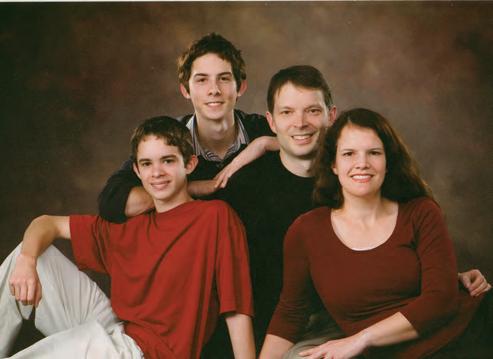

What would people be surprised to know about the law school?
We have a tremendously successful faculty of scholars who are nationally and internationally renowned. What people probably don’t know is the kind of education that we offer here; how we integrate that scholarship into the educational experience of the students, much like at traditional liberal arts colleges. They probably don’t know how well we’re placing our students and how we’re one of the best schools on the West Coast for our placement numbers. They probably don’t know how well-

4
Our alumni are so talented, there’s so much there to tap into, that we have to re-connect with them. And they want to give back.
integrated we are into the government here in Oregon or how many leaders we have throughout the Pacific Northwest and in other places.
How is Willamette different from all the other law schools in the region?
Well, first of all, we’re small. Some of the law schools are quite a bit larger than us. We are very much a part of a distinctive kind of learning environment here. We’re not a big state school where students can easily get lost, we’re not a school that’s very urban and that doesn’t have much of a sense of community. We talk about the close personal learning environment, and that’s what we emphasize here. We try to live it and breathe it every day. Second, we’re located right across the street from the state Capitol. We have very close relationships with all areas in the state government, and it provides a tremendous number of opportunities for students to have real-world learning experiences while they’re in law school. Last but not least, we’re located in a wonderful place to live. We are right in the middle of wine country, and we’re a paradise for outdoor enthusiasts. It’s a beautiful place to live, it’s affordable and it’s got the best combination of professional and recreational opportunities.
and make sure that we are bringing in students who have every chance to be successful. And then finally, I really want to make sure that we are in touch with the alumni network. I want to get our alumni even more involved so that we can stand on their shoulders, perhaps more than we have in the past. It starts with them being more involved in the life of the school and making sure that for them, Willamette is very much a present tense thing rather than a past tense thing. Because we will go exactly as far as our alumni take us.
What’s your advice to this year’s incoming class?
6 7
If money wasn’t an object, what’s the next big project you’d like to see the law school take on?
What I would love to do is really build on our strengths, especially in law and business. We’re sitting in the heart of an entrepreneurial mecca here with the wineries, the breweries, the apparel companies, the tech sector and agriculture, all of that. It would be wonderful if we had a center to help train the lawyers who can help the entrepreneurs in these growing business sectors thrive and flourish. Whether it is the next Columbia Sportswear, Willamette Valley Vineyards, Starbucks or Dutch Bros. Coffee, successful businesses need talented and thoughtful lawyers. We train the lawyers who are going to make the next Dutch Bros. Coffee possible.
What is going to be your highest priority in the next year, the next three years, the next five years?
Well, in the next year it’s going to be jobs for our graduates, in the next three years it’s going to be jobs for our graduates and in the next five years it’s going to be jobs for our graduates. We have to make sure our students are getting good jobs and that they have the best opportunities possible. We’re never going to be done with that. We also have to continue to recruit the best students
8 9
To start their job search from day one. They need to make sure that they are building a network for themselves. Lawyers have to do this to build a book of business, so it’s a skill they should learn to master sooner rather than later. I will also tell them to make sure they take advantage of the tremendous faculty. The faculty takes pride in the fact that they have good relationships with students; the faculty want to help. And finally, I will tell them to remember to have fun. Studying law is not fun every day, nothing’s fun every day. But law school can truly be enjoyable and rewarding. They need to remember it’s a tremendous opportunity for them; they’re entering a profession that’s a real privilege to be a part of, a profession that has so many opportunities to help people and opens up so many different kinds of careers for whatever kind of work you’d like to do. Being a law student can sometimes be very difficult, of course. It’s very demanding and challenging and tiring and all of those things. And so when those days come, when you’re tired and frustrated and challenged, remember that this is a wonderful thing to be doing, and a tremendous honor.
Twenty-five years from now, what will be different at Willamette and what will be the same?
I hope a lot is the same. I hope that we are still a place that’s small, that looks for a few really good students every year and doesn’t just try to get really big. I hope it’s a place that’s still in touch with the idea of a liberal arts education throughout
We talk about the close personal learning environment, and that’s what we emphasize here. We try to live it and breathe it every day.
graduate school but that is still making sure that it is preparing its students for a profession. And I hope it’s still a place where people graduate from the law school and continue to see the law school as a part of their lives.
What will be different?
I’m not sure. The legal profession is changing. A lot of people have a lot of confidence that they know exactly how it’s changing, but I’m not one of those people. It’s difficult to separate those changes that are temporary from those that are permanent. We cannot chase every fad in legal education, but, at the same time, the law school is going to have to adapt to make sure that the education we provide responds to the changes in practice. We can’t lose touch with the nature of the practice of law and the profession our students are entering. Those changes are impossible to predict, but we need to be adaptive.
Are you going to teach?
I am. I’m teaching contracts this fall, for starters. That’s the best part of the job, for sure. Teaching is just an amazing experience and an amazing privilege, and I hope I never have to give that up.
What makes a good law professor?

Well first of all, you have to care about the students. Obviously you have to be an expert in the field. What we want out of a professor is someone who is a leading scholar in the field, who’s engaged in a national discussion, and ideally is on the cutting edge of that discussion. But it’s not enough to be an expert. We forget sometimes how much students coming right out of college don’t know about the law. So the trick about teaching, I think, and to being good at it, is to care about the students enough to see it from their point of view. We have to be able to see when they get it and when they don’t and if they don’t get it, why not? And that’s not as easy as it might sound.
Any fundamental changes you think should be made to law school curriculum?
I don’t think there are any radical changes that need to happen to the law school curriculum as a whole. What I do think needs to happen is that we have to always make sure that we have the right menu of courses for students to choose from. The first-year curriculum still serves the purpose it needs to serve, but we need


to make sure that our upper-level curriculum helps the students transition to the practice of law. We ask our adjuncts to teach the way they wish they had been taught. We strive for the right combination of theory and practice.
There’s a lot of talk about the crisis in legal education. Do you in fact think there’s a crisis, and if so, what should law schools be doing about it?
People mean a couple of different things when they talk about a crisis in legal education. One is whether law schools are sufficiently attuned to preparing their students to practice law. That’s a very serious question, a very important question; it’s also a very broad question. There are more than 200 law schools in the United States and many of them have very different kinds of missions. I don’t have time to worry about it; my concern is that Willamette is preparing its students to practice. I don’t think there’s a crisis in legal education at Willamette. I think we’re by and large doing the kinds of things we need to do, although we need to be always making sure we’re improving and adjusting.
We’re a little smaller than we used to be because fewer people are applying to school, and we want to make sure that we only accept people who have a very good chance to be successful. But the model for us still works.
There’s also the larger question of whether law schools in the country are graduating too many lawyers. And again, for me, that’s a really big question, but it’s not one that I must worry about. My focus is on whether there are enough opportunities for our students to get jobs. It’s the top priority. But it’s my top priority not because the New York Times says there is a crisis in legal education nationally; this would be my top priority even if these were booming times nationwide as well.
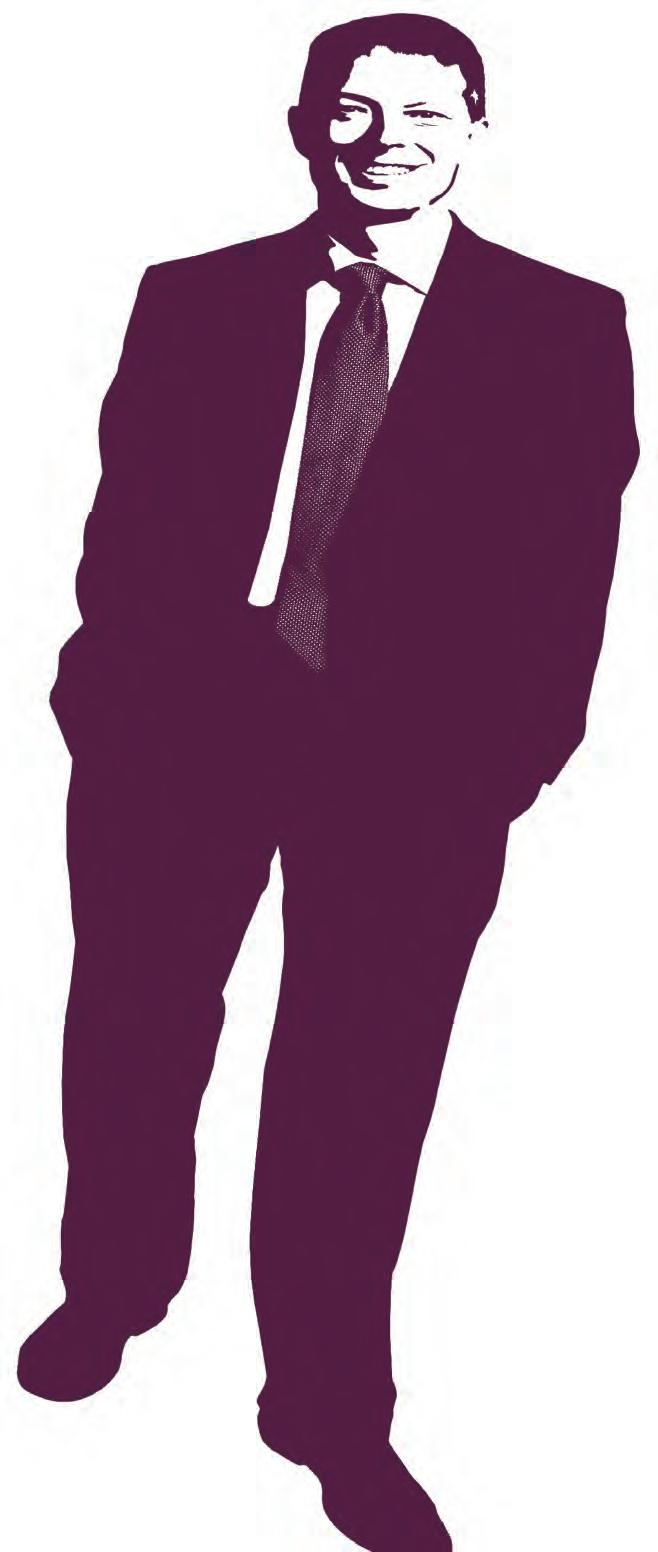
We have to make sure our students are getting good jobs and that they have the best opportunities possible. We’re never going to be done with that.
He’s tall, broad-shouldered and gregarious. His favorite movie is “The Wizard of Oz.” He’s an artist, a painter and a cartoonist. He writes limericks and is prone to grandiose statements, such as calling the state of Washington the most beautiful place “in the solar system!” He’s a magna cum laude graduate of Willamette University College of Law, and he’s the disarmingly personable new governor of the State of Washington.

Meet Jay R.
Inslee JD’76

The former congressman arrived in Olympia in January with bold goals, including having the state lead the world in combating climate change. Committed to growing the state’s innovative industries such as clean energy, information technology and life sciences — as well as strengthening the hallmark industries in aerospace, agriculture, maritime and the military — Gov. Inslee has his work cut out for him. But challenges are nothing new to Willamette’s latest success story.
During the governor’s race, many thought former State Attorney General Rob McKenna was a shoo-in for the job. McKenna was a popular moderate, endorsed by The Seattle Times and most other state newspapers. But Inslee’s warmth, charisma and vision won out, and after the ballots were counted, it was Inslee who stood victorious.
After being in the public eye for the past 25 years, Inslee is a familiar face. Yet most Washingtonians are just now getting to know him, in part because he toiled in the shadows of other state politicians and wielded limited clout as a junior member of the minority party in the U.S. House. His story is one worth knowing — an object lesson in what can be accomplished with hard work, a good education and a passion for change.
Life Before Politics
A fifth-generation Washingtonian, Inslee grew up in Seattle. He worked his way through college, graduating from the University of Washington with an economics degree before heading to Willamette University College of Law. Inslee and wife Trudi, his high school sweetheart, lived south of downtown Salem on Pringle Avenue during school. He clerked at law offices in Salem and Albany when he wasn’t driving a cement truck to help pay the bills. What drew him to Willamette, Inslee says, was its sense of community. It was where he forged strong friendships with his classmates and gained practical skills that served as the foundation for his career in law and politics.
“I had a great experience in law school. I enjoyed it, and I was challenged by it,” Inslee says. “I enjoyed law school because I thought it was giving me a trade and real-world expertise to help people in real-life situations. It was a great adventure.”
“He had a real focus on what he wanted to do,” remembers John L. Hemann BA’65, JD’68, partner at the firm eventually known as Garrett Hemann Robertson P.C. in Salem when Inslee clerked there as a Willamette law student. “He knew how to work hard and made quite an impression on us.”
What Inslee found especially valuable during law school was a contracts class he took from Elliott Abramson as a new student and the instruction he received from several faculty members — including the “legendary” John C. Paulus, who transformed property law into “performance art.”
But the lesson that’s remained with him for nearly 40 years is the understanding of law’s significance — something he hopes today’s law students take to heart.
“The longer I am away from the daily practice of law, the more I understand law’s fundamental importance to democracy,” he says. “Sometimes you forget how important it is to make sure that the legal system has integrity, consistency and fairness. We need to try to inspire people to really maintain their integrity in the judicial system.”

Establishing his Career
After graduating from Willamette, Inslee settled in Eastern Washington and worked as an attorney in Selah for 10 years. He says he didn’t have any political aspirations until state legislators undercut the school bond that he and Trudi had helped pass and reduced state matching funds for building a new high school. Furious, he decided to run for office.
And so began a political career that stands out for its underdog victories, memorable votes and its unique ability to part the
What Inslee found especially valuable … [was] instruction he received from John C. Paulus, who transformed property law into “performance art.”



“The longer I am away from the daily practice of law, the more I understand law’s fundamental importance to democracy.”Gov. Inslee and his wife Trudi (left) at ceremonies celebrating the 50th anniversary of the sister-state relationship between Washingon State and Hyogo Prefecture in Japan.
A Day in the Life of a Governor

CLOCKWISE FROM TOP LEFT:
The interior of Washington’s Capitol Building

The governor at work
The governor, greeting members of a delegation from Hyogo Prefecture in Japan and dignitaries from Washington State, gathered to celebrate the 50th anniversary of Washington’s sister-state relationship with Hyogo Prefecture.
A luncheon celebrating the anniversary of Washington’s sister-state relationship

Gov. Inslee plants a tree dedicated to the 50th anniversary of their sister-state relationship.
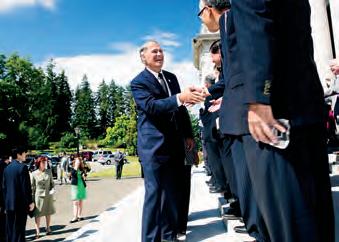

east-west Cascade curtain that often divides state politics even more than party loyalty.
Winning a seat in the state Legislature in 1988, Inslee represented a conservative agricultural area for four years. House Speaker Joe King described him as someone who wasn’t afraid to “incur the wrath of the Speaker.”
Seeking higher office, Inslee won a congressional race in 1992 in the Republican-leaning 4th district. As a member of the U.S. House, he helped lift a trade ban to get apples into Japan. He also found money for cleaning Hanford’s nuclear mess and brokered a deal between irrigators and wildlife advocates regarding the water rights of the Yakima River.
Yet his first stint in Congress was brief, perhaps because it became clear the moderate Democrat was more liberal than his conservative constituents. Inslee was one of a few rural lawmakers to help pass the 1994 assault weapons ban less than two months before Election Day.
“Everybody knew that would cost him his seat, and it did,” says Joby Shimomura, an Inslee adviser who has worked for him, on and off, for 16 years. But she says his vote sent the message that he’s guided by principles, not politics. “That’s why people want to work for him. He makes you feel like you are part of something big.”
A Second Shot
After losing his first congressional seat in 1994, Inslee returned to the Seattle area and ran a long-shot race for governor in 1996, losing in the primary to the eventual winner, Gov. Gary Locke. Restless, he ran for Congress again in 1998, defeating a Republican incumbent. That made him the first politician to represent districts from both sides of the Cascades since 1919.
So unlike most newly elected congressmen, Inslee didn’t need a crash course on apple markets, water wars or Hanford. He could already discuss the nuances of irrigation weirs and nuclear glassification plants.
But the issue that moved him most was climate change. Along with technology, it was his defining issue in Congress. He co-authored “Apollo’s Fire: Igniting America’s Clean Energy Economy,” a 2007 book advocating ways to wean the country off foreign oil, generate green jobs and slow global warming.
An Unrelenting Pace
During a legislative recess in May, Inslee traveled around the state trying to generate public support for his plan to finance a $1 billion increase in K-12 spending by extending expiring taxes and closing “outdated” loopholes. “To govern is to choose,” he told a crowd in Bellevue. “And I decided to choose our kids’ education over tax breaks.”
Gov. Inslee’s Apollo’s Fire is a thoughtful, optimistic book charting a vision for a new energy economy. Rejecting old shibboleths that economic growth and greenhouse gas reductions are mutually exclusive, Gov. Inslee tells the real-life stories of the people who are right now on the front lines of the energy revolution. The book has received widespread praise from noted leaders and activists.
“For those of you who want to move beyond the doom and gloom of the global warming dialogue, ‘Apollo’s Fire’ fits the bill. Set in a frame of optimism and urgency, this book thinks big and shows that innovation, curiosity, and imagination already are driving the beginnings of an Apollo-like leap toward necessary solutions. The authors’ sweeping and attainable vision for America’s energy independence shows we can once again reach for higher goals and succeed.”

—Robert Redford, actor and director
“Their vision is true to America’s competitive spirit … It is innovation for the improvement of humanity. It is science as stewardship. This is our errand into the wilderness, and it is our obligation to our children and to the global community. ‘Apollo’s Fire’ calls us to our destiny.”
—President Bill Clinton, in his foreword to Apollo’s Fire
That’s why people want to work for him. He makes you feel like you are part of something big.
— JOBY SHIMOMURA
… unlike most incoming Washington governors, Inslee didn’t need a crash course on apple markets, water wars or Hanford. He could already discuss the nuances of irrigation weirs and nuclear glassification plants.

That same day, Inslee stopped at the 75th floor of Seattle’s tallest building to address a group of influential Latinos celebrating Cinco de Mayo. The Columbia Tower penthouse party was filled with prominent King County politicians, but once Inslee entered the room, he was the focal point as people jockeyed for a word or a photo with “The Guv.” Inslee’s ability to connect with people was immediately evident.
Brian Bonlender, his former congressional chief of staff and current state commerce secretary, recounts that Inslee’s knack for talking to ordinary people was always there. “He’s a very optimistic and energetic person,” Bonlender says. “We were always running late in D.C. He’d talk to everybody,” he recalls.
Soon after the Seattle party, Inslee is aloft in a small State Patrol plane returning home. Passing over the volcanoes below, Inslee marvels at the landscape, snapping cell phone pictures of the mountains below. Though exhausted by the long day, Inslee seems rejuvenated at the sight of Mount Rainier.
A Vision for the Future
At a Vancouver gathering of teachers, Jeff Johnson, president of the Washington State Labor Council, introduces Inslee as his favorite of the five governors he’s worked with. “He makes you feel at ease more than the others,” Johnson says. “He’s not of the Olympia mold.”
Inslee hopes to reshape and reform Olympia, not an easy feat given the divided legislature. His key plans to increase education spending, close tax loopholes, curb climate change and more were almost entirely shelved by a Republican-led Senate demanding spending cuts. During the first month-long overtime session, not a single bill was passed.

But Inslee is not deterred and says he’s just getting started.
“I made some mistakes, and I learned from them,” Inslee says of his opening months, noting that he chooses his words more
carefully after watching casual comments misinterpreted as policy statements.
He advocates “lean management” strategies and is the first governor to select a schools superintendent as his chief of staff. He has made other surprising hires, indicating he prefers outsiders.
Secretary of State spokesman David Ammons, who has watched seven governors during his 42 years as an Olympia journalist and state official, says Inslee reminds him of Booth Gardner, who worked well enough with Republicans to pass growth management constraints and was popular enough with voters to easily win a second term.
Ammons recalls that Gardner, like Inslee, was not an Olympia insider when he arrived. Yet, both men, he says, were playful and engaging from the start. Offering the highest praise, Ammons notes that “Inslee seems like the sort of guy you’d like to have a beer with.” Inslee realizes he’s still making first impressions, but believes time is on his side. “I’m as optimistic as when I took office,” he says. “I don’t feel overwhelmed at all.”
Inslee’s confident he’ll figure out how to move legislation and make good things happen for the state. Meanwhile, he figures he can make a difference by repeatedly sharing his optimism about what can be accomplished in a place that he likes to call “the most innovative state in human history.”
Ever the optimist, Inslee is playing a long game. “I’ve been successful,” he says, “at trying to give people a sense of what’s possible — one person, one speech at a time.”
“I’ve been successful at trying to give people a sense of what’s possible — one person, one speech at a time.”Gov. Inslee on the phone with U.S. Attorney General Eric Holder. David Postman, executive director of communications, and John Lane, senior policy advisor, look on. (Photo courtesy of Governor Inslee’s office.)
A Place of Their Own
H
Kids in foster care shouldn’t have to cycle through multiple homes, says Distinguished Jurist-in-Residence Paul J. De Muniz JD’75. A program he champions gives kids the permanency they’ve always wanted.
This is the bedroom of a 16-year-old foster child who knows she has found a forever home: Justin Bieber and Selena Gomez posters paper the walls. A guitar in a black case leans on a wall next to a twin bed. Simon the Siamese cat purrs on a heap of pillows. Placed in foster care at 2, Brandy moved five times before age 13. Then, two years ago, the reed-thin redhead came to live in a group home owned and operated by Catholic Community Services (CCS), a social service organization championed by the Hon. Paul J. De Muniz JD’75.

The Salem nonprofit promises Brandy and the other 19 teens and preteens who live in their six community homes that until age 18 — and sometimes into their early 20s — they will never have to move again, even if their behavior falters or even if their foster parents turn over. What’s more, Catholic Community Services and similar agencies can throw their financial and emotional support behind these youngsters

until the age of 26 through a community guardianship law passed by the 2012 Oregon Legislature.
The community guardianship law allows courts to appoint childcaring agencies as the guardians of children who are at least 16 years old and who have been in foster care three or more years. Once appointed, these agencies guide children as they transition into adult life, giving them housing, education, employment and a host of other connections and support.
Catholic Community Services’ community homes are designed to shelter and nurture what the organization’s executive director estimates are the 5 to 8 percent of children who linger in Oregon’s foster care system and whose disruptive behavior bounces them through several homes. One boy residing in a community home had lived in 40 different foster homes by age 10.
“No child — no child — should ever have been subject to that,” says De Muniz, who met the boy when he ate dinner with his foster family in December.

De Muniz’s commitment to the community homes runs deep and is informed by his years on the bench. He lobbied the 2013 Oregon Legislature to create a two-year community home pilot program based on Catholic Community Services’ model, and has served as the public spokesman for Fostering Hope, a neighborhood-based parental education and support program also operated by Catholic Community Services.
About 13,000 Oregon children spent at least one day in some kind of foster care setting in 2011, according to the Oregon Department of Human Services. Nearly one of every four children in foster care has lived in four or more homes. Foster children lose more than just their foster parents when they move. They often change schools, friends and neighborhoods, too, each displacement chipping away at the bricks of security that build healthy adults.
Abused or neglected, then pushed through one revolving foster care door after another, children can become so unmoored that they act out in ways intended to provoke their rejection or punishment from their caregivers. Children locked in this cycle break into their foster parents’ bedrooms and urinate in their closets. They bash their heads against tables until they’re bloody, throw platefuls of food, punch their fists through walls.

“Their attitude is if the adults in my life don’t know that I care about anything, then I can’t get hurt,” says Jim Seymour, executive director of Catholic Community Services Mid-Willamette Valley Central Coast.
Buffeted by what researchers call “toxic stress,” foster parents may eventually snap and kick the child out or hurt them. Either response reinforces the child’s belief that they are unwanted and unloved.
“They harden up,” Seymour says. “Their behavior gets worse, and it just becomes harder for their next caregiver.”
Children with such behavior problems are moved to increasingly restrictive placements. But Seymour says the expense of the interventions built in to these programs puts pressure on

Once appointed, these agencies guide children as they transition into adult life, giving them housing, education, employment and a host of other connections and support.Aubrey Mae
caseworkers to nudge kids into less restrictive settings as soon as they show signs of improvement, with a small percentage of children running up and down an expensive — and heartbreaking — foster care ladder.

“No one would have intentionally designed the foster care system the way they did if they knew how it would work,” Seymour says.
The community home model is set up to interrupt that cycle, relieve stress and allow foster children to remain in a stable, safe home. Children 10 years or older who have been in foster care for two or three years, endured multiple foster care placements and live in Marion, Polk and Yamhill counties are candidates for community homes. Seymour estimates a child who enters foster care at age 3 and bounces around several homes before aging out of the state’s care at 18 will cost the state about $500,000. His estimates, based on the costs of children CCS has worked with, show the state could save $200,000 if the child moves into a community home by age 10.
Community home house parents receive 40 hours of training before they begin and a minimum of 10 hours of training each year as long as the kids remain with them, all of it based on a Girls and Boys Town curriculum called “Rebuilding Children’s Lives.” Respite caregivers step in to provide breaks for house parents. Mental health counselors work closely with foster children in their homes, and adult mentors work on establishing another close adult relationship with the children.
Pam Lange and Sharon Moore, longtime friends, became house parents a year ago to Brandy and the two other teenagers who live in Catholic Community Services’ only girls home. (A new one in McMinnville will open for girls soon).

The women raised their own children years ago, but each found herself bored in retirement. Now Lange rises early to make breakfast burritos and get the girls out the door. Afternoons are packed driving the girls to and from appointments. Moore gets dinner on the table, with Brandy contributing homemade pumpkin pie, chicken and ribs.
Lange and Moore have filled the house with deep, overstuffed furniture and bright art. Photos of the girls cover a dining room wall. The pantry is packed with food, and the girls don’t have to ask permission to eat it or to use the bathroom like they did in other foster homes, Brandy says.
Like Brandy, most children placed in community homes stabilize, says Josh Graves, chief strategy officer for Catholic Community Services. Since opening their first home in Keizer in 1998, more than 100 children have lived in the community homes; fewer than 10 have been removed. Notably, 40 percent of children in community homes are eventually reunited with kin or close family friends who see their improved behavior and offer up their homes, Graves says.
Children in community homes are not required to leave when they turn 18. One young man stayed until he graduated from college, but most teenagers are anxious to strike out before that.
That was the case with Juan-Manuel Gomez, who moved into a community home at 13. His turbulent childhood included a five-year stint in foster care from ages 3 to 8, a time when he estimates he lived in as many as 23 foster homes before being reunited with his mother. Then, he ran wild.
“Pretty much, I was a delinquent. I was a bad kid. I was into gangs and drugs and on probation at 9 years old,” Gomez remembers.
“The community home is where everything changed,” he says. His foster parents “were consistent. They made sure we knew ‘we’re taking this job because we want to treat you like our kid.’
Gomez remained in the community home until 18, graduating with honors from high school. A member of the community homes’
youth advisory council, Gomez testified in support of the 2012 community guardianship bill that De Muniz was instrumental in getting passed.
Like many young adults, especially those raised in foster care, Gomez has stumbled since venturing out on his own. Attending Oregon State University proved too intimidating, and he returned to Salem for community college. Eventually he became homeless, once as long as nine months. Now 21, employed by a mortuary and living in Section 8 housing, he’s grateful for the mentoring and assistance he receives from CCS, but says he would have benefited from the more formal guardian system he supported.
“I wouldn’t be on my own yet,” Gomez says. Community guardianship is based on the principle of subsidiarity, a Catholic social teaching which holds, in part, that policymaking should be decentralized and local when possible. In practice, it means Catholic Community Services and similar nonprofits
can extend their caretaking obligation through a young adult’s turbulent early 20s, offering, in CCS’ case, housing, jobs and continued support from caring adults.
Community guardianship “provides a different kind of attachment and care,” De Muniz says. “It’s basically saying, ‘we’ll do what parents do after you’re 18. You’ll still have a place to go; you’ll still have people who care for you.’”
Seymour and others hope that experiencing the community’s care will inspire former foster children to give back when they reach adulthood by acting as mentors, donating to charity and sharing their stories with policymakers.

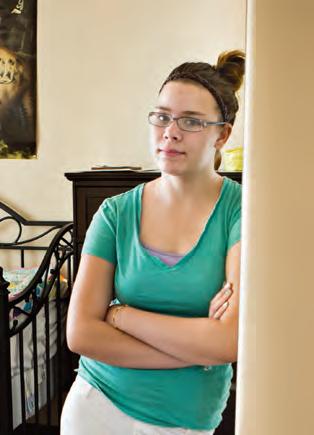
The Community Homes program is continuing to grow, with two homes currently under construction in West Salem and Lincoln City.
“The real vision,” Seymour says, “is that this becomes the way our nation handles this really troubled group of children.”
No one would have intentionally designed the foster care system the way they did if they knew how it would work.Pictured left: Pam Lang Pictured above: Tia — Paige Parker
Professors David Friedman, Gwynne Skinner Receive Tenure
David Friedman, director of the Certificate in Law and Business program, and Gwynne Skinner, director of the International Human Rights Clinic, were awarded tenure earlier this year.
Friedman directs the law school’s Certificate Program in Law and Business. Students have voted him Outstanding Professor of the Year several times. Last year, Friedman received Willamette University’s Jerry F. Hudson Award for Excellence in Teaching.

Friedman’s scholarship focuses on how people make transactional decisions and what the regulatory response should be. He’s interested in free offers and the bait-and-switch tactics that companies use, as well as the efforts of politicians to regulate private behavior.
“People don’t behave like robots,” Friedman says. “What mistakes should we be correcting, and what mistakes should we say are impractical to correct?”
Friedman’s scholarship is especially timely as big-city mayors like Mike Bloomberg seek to regulate the soft drink habits of New Yorkers as part of an effort to curb obesity, and as former Portland commissioners sought earlier this year to include fluoride in the city’s drinking water.
The fluoride and soft drink debates, Friedman says, are about removing choice. “That’s when paternalism has its limits,” he explains. “This stuff affects everyone because we’re all consumers. When I present my work, there’s always a vibrant discussion because everyone can relate to the core problem.”
Professor Gwynne Skinner, director of Willamette’s International Human Rights Clinic, focuses her scholarly research on issues related to human rights litigation in U.S. courts and the role of international law in the U.S. domestic legal system. She has litigated high-profile cases: Hamad v. Gates, et al, and Ameur v. Gates, et al, which allege violations of international law on behalf of two former Guantanamo Bay detainees; and Corrie et al v. Caterpillar, which involved corporate liability for violations of human rights in the

Occupied Palestinian Territory. Skinner recently was asked to serve on the International Corporate Accountability Roundtable (ICAR), which promotes corporate accountability for human rights abuses around the globe.
“The courts and Congress have treated international law with a lot of respect,” Skinner says. “Even though there may be temptations to have that changed, it shouldn’t happen.” In the post 9/11 era, Skinner says, human rights are being sacrificed in the fight against terrorism.
Willamette students have assisted Skinner on the Guantanamo Bay cases, as well as more routine cases of people seeking asylum from persecution they’ve suffered abroad. They’ve helped compile a report on human trafficking in Oregon.
“I want to give students a good, solid set of skills that they can build on, and I want to use the clinic to challenge them intellectually to deal with these cases that don’t fit neatly into a box,” Skinner says. “I push them and push them to think outside of their comfort zone. That’s what we should be doing as law professors.”
Friedman’s scholarship focuses on how people make transactional decisions and what the regulatory response should be.
Skinner focuses her scholarly research on issues related to human rights litigation in U.S. courts and the role of international law in the U.S. domestic legal system.
New Law Librarian Joins Willamette
Ann Kitchel, the law librarian from Creighton University School of Law, started a new job as law library director at Willamette University College of Law in May.

Kitchel, who also taught legal research and writing at Creighton, was assistant law librarian for public services and law reference librarian at the University of Oregon School of Law. A native of Omaha, Kitchel received a juris doctor from the University of Nebraska College of Law and a master of library science with special certification in law librarianship from the University of Washington.
Kitchel met her husband at the University of Oregon and says
she’s thrilled to return to the Willamette Valley.
“I see libraries not as static facilities but as dynamic learning environments,” she says. “Willamette does amazing things with the level of staffing we have.”
Law libraries around the nation are evolving into service and teaching facilities rather than merely being repositories of legal materials, Kitchel says. She hopes to help students connect the tools available through the library with the process of thinking like lawyers.
While at Creighton, Kitchel was the project manager for the law school’s renovation and addition during the 1997–98 school year and was the project director for the law school’s migration to a new, automated system during the 1999–2000 school year. One of her first tasks at Willamette, she says, is to assess the library’s strengths and challenges going forward.
Kitchel replaces professor Richard Breen, who retired in 2012.
Judicial Writing Students Assist in Drafting Oregon Appellate Court Opinions

The Oregon Court of Appeals earlier this year published its first opinion assisted by a student in a new class taught by Distinguished Jurist-in-Residence Paul J. De Muniz JD’75.
Student Jamee Asher helped craft State v. Collins, which involved the reliability of eyewitness testimony in an 11-year-old criminal case. The opinion reaffirmed the decision of the trial court, which denied the defendant’s claim that eyewitness identification in his case was inadmissible because, among other reasons, a pretrial photographic lineup was unduly suggestive.
De Muniz retired last year as chief justice of the Oregon Supreme Court and sits on the Court of Appeals as part of his retirement. His judicial writing class instructs students how to draft appellate court opinions. Third-year students win admission to the class through a lottery and the size is limited to five. Each student works with De Muniz on crafting an opinion for a case assigned to him by the Court of Appeals.
“Law students work on drafting opinions, similar to performing the role of an appellate law clerk,” De Muniz said. “Doing this kind of work sharpens their analytical writing skills. Students learn how to write with a particular voice, learn how narrowly focused you have to be and disciplined the author must be in drafting an appellate opinion.”
De Muniz is teaching judicial writing again this semester.
Goodbye to the Class of 2013 …
Graduation is always a family affair, but the law school’s 2013 commencement and hooding ceremony felt especially intimate this year as Willamette law graduates from the 1970s and 1980s hooded their sons and daughters, and the law school said farewell to two deans and three professors.
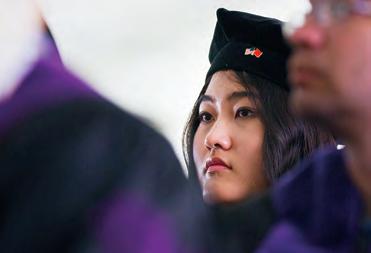
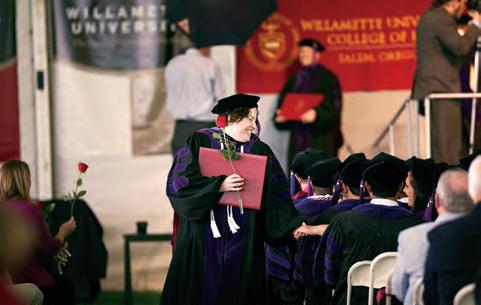
Commencement speaker Paul J. De Muniz JD’75, Willamette’s distinguished jurist-inresidence, told the class of 2013 that to be successful, they should build their law careers on personal integrity, a commitment to civility and the preservation of access to justice and the rule of law.


“Although law is a profession of endless possibilities, success and fulfillment in the law is not guaranteed,” he said to the 127 graduates. “At the heart of the legal careers of the great lawyers in legal history is personal integrity. Nothing will be more important to you than your reputation. It’s the rock upon which every successful law career will be built.”
The College of Law awarded 123 JDs and four LLMs at the school’s 127th commencement and hooding ceremony. The hooding was done by professor Jeffrey C. Dobbins, executive director of the Oregon Law Commission at Willamette University, and professor David A. Friedman. Several members of the class were hooded by their parents, who graduated from Willamette decades ago. But one graduate was hooded by his mother, who earned her degree in 2010 after her children were grown.
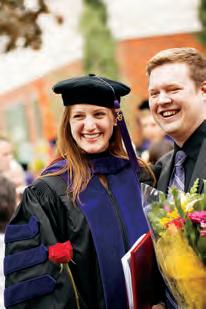
Three professors who retired received the distinction of emeriti faculty. They were Kathy Graham, a former associate and acting dean who has taught at the law school for 36 years; Richard Hagedorn, the Van Winkle Melton Professor of Law, who has taught for 29 years; and Dean Richardson, who has taught at the law school for 39 years.
“These are three people who have made a significant difference in not just the lives of the students, but all the people who have come through this institution,” said Steve Wynne BA’74, JD’77, chairman of Willamette’s Board of Trustees.
Dean Peter Letsou and Associate Dean Jeffrey Standen also were recognized for their service to the law school. Standen, who has taught at Willamette for 23 years, left to become dean of the Salmon P. Chase College of Law at Northern Kentucky University. Letsou, a former associate dean who taught at Willamette for a decade, is now dean of the Cecil. C. Humphreys School of Law at the University of Memphis.
“The degree you receive today is less about economic satisfaction and more about having the tools to make positive changes in the world,” Letsou said. “Few callings are nobler than yours.”
THE 1Ls AT A GLANCE
…and hello to the Class of 2016
Dean Curtis Bridgeman welcomed 124 first-year students to the College of Law in August, telling them in his opening day speech that their legal careers began today.
“For 130 years Willamette has been training lawyers who go on to achieve enormous success in a variety of careers, including private practice, business, public service, and the highest levels of government,” he said. “It is thrilling for me to imagine the impact you will have and the difference you will make in people’s lives. We are proud to play a role in your journey.”
The theme for the three-day orientation was that from their first days at Willamette, law students are beginning their transition to professional life. In what has become a long-standing tradition, more than 50 practicing attorneys and judges participated in the professionalism program on the first day of orientation, helping to introduce the new students early to the ethical responsibilities of the profession. In addition, parts of each day of orientation were focused on building a professional network and preparing for the job search early.
The members of the class of 2016 are a diverse group. They come from 17 different states and attended 66 undergraduate institutions. The median age of the class is
LIFE EXPERIENCES OF THE CLASS OF 2016
Members of the entering class have been:
• a campaign manager
• a commercial model
• a military police officer
• a labor union president
• a peace corps volunteer
• a small business owner
25 and includes students who have worked as account executives, finance directors, legislative consultants, business owners and web masters. They speak 14 foreign languages, including Arabic, Mandarin and Wolof.
Echoing Dean Bridgeman’s remarks, several students said they see a career in the law not just as a vocation but as a professional calling. “When I become an attorney,” said Danny Arredondo, a 1L, “I will be helping people who may be in the worst place in their life, simply by doing a good job while at the work I love.”
Willamette alumni played a large role in the enrollment process. Some wrote letters of recommendation for several students, and many made countless recruiting calls to admitted students. More than 100 attorneys, including both alumni and other friends of the school, are serving as mentors for current students.

“When I become an attorney, I will be helping people who may be in the worst place in their life, simply by doing a good job while at the work I love.”
—Danny Arredondo 1L
Oregon Law Commission is 6 for 6 on Bills Passed by the 2013 Legislature
The Oregon Law Commission, the state’s official law reform commission housed at the College of Law, had one of its most successful legislative sessions in recent years: Lawmakers approved six bills the OLC introduced that dealt with adoption, delinquent youths, notaries, the Uniform Trust Code, juvenile court records and the Unsworn Foreign Declarations Act.
“It’s great to get 100 percent passage,” said Wendy Johnson JD’98, deputy director and general counsel of the OLC. “We thought it was a very collaborative session.”
Two of the most significant bills, House Bill 2836 and Senate Bill 623, involve juveniles.
HB 2836 establishes a procedure for determining when youths are unable to aid and assist in their defense when a delinquency petition is filed. Although youths currently have a constitutional right to raise the issue of whether they’re able to aid and assist in their defense while in juvenile court, the Oregon Juvenile Code says nothing about how to handle the issue, Johnson said. The bill provides for mental health and educational restorative services for juveniles who are found unable to aid and assist.
Johnson said Rep. Jennifer Williamson JD’01, D-Portland, was instrumental in getting the bill passed. Williamson was a
member of the House Judiciary Committee and co-chair of the Joint Ways and Means Subcommittee on Public Safety and “became our champion,” Johnson said. “She loved the bill and saw the real need to assist kids and protect communities.”
Senate Bill 623 updates Oregon’s adoption law as it relates to access to court records in adoption cases. The bill says judges and court staff, adoptive parents and attorneys, and the Department of Human Services may see the entire adoption court file during the case and afterwards without having to get a court order, which is currently the case. The bill also allows the person being adopted to inspect and copy the court records without a court order when they turn 18 — a change from current law, which allows adoptees to know their medical history and who their biological parents are but keeps the rest of the court file sealed.
Other more routine bills that passed included Senate Bill 592, which revises the Oregon Uniform Trust Code. Lawmakers first passed it into law in 2006, and SB 592 makes several changes that balance the interest of trust beneficiaries and those who administer trusts. House Bill 2833 enacts the Uniform Unsworn Foreign Declarations Act, which allows U.S. residents living abroad to provide sworn statements without having to visit a U.S. embassy. House Bill 2834 updates Oregon’s notary laws.
One topic that lawmakers didn’t address: judicial selection. Distinguished Jurist-inResidence Paul J. De Muniz JD’75 led an OLC work group that discussed whether appellate judges in Oregon should be elected or appointed. The Commission deferred recommendations on several judicial selection proposals for a future session but plans to continue its work on the issue during the legislative interim.

Law School Professors Testify at the 2013 Oregon Legislature
Willamette was well-represented during the 2013 Legislature, with several professors testifying on high-profile bills.
Professor Keith Cunningham-Parmeter testified at a hearing on several guncontrol bills sponsored by state Sen. Ginny Burdick, D-Portland. The bills would have expanded background checks for gun buyers, prohibit concealed handgun licensees from carrying guns into schools and require gun purchasers to pass a firing range test.
Professor Susan L. Smith also testified on gun control. “Based on my review as a law professor at Willamette University, these gun safety bills currently pending in the
Oregon legislature in no way violate the Second Amendment of the United States Constitution,” Smith said. “All of the legislative proposals on gun safety fit well within the confines of the most restrictive reading of Supreme Court decisions. More than 90 percent of Americans, including Oregonians, support universal background checks.”

Associate Dean for Academic Affairs
Norman Williams, director of Willamette’s Center for Constitutional Government, testified on a proposed amendment to the Oregon Constitution. The amendment, which would have required a referral to a vote of the people, said that initiative petitions proposing a law or constitutional amendment with fiscal impact would have to provide a new tax or fee or an increase in the rate of the existing tax or fee to cover immediate and future costs of the law or amendment. Williams also testified on a bill requiring escrow agents to deposit trust funds in interest-bearing accounts, and for the interest to be distributed to public benefit corporations whose purpose is to finance legal services to low-income clients.
Professor Gilbert Carrasco, vice chairman of the Oregon Commission on Hispanic Affairs, testified in favor of a bill that would grant temporary driver’s licenses to undocumented immigrants who have lived in Oregon for at least one year and can prove their identity
“This is not an immigration issue. This is a public safety issue,” Carrasco said. “State-based policies that continue
adversely to affect Hispanic residents are counter-productive in a society that prides itself on equal protection for people of color and those of diverse ethnic backgrounds.”
Toward the end of the session, professor Laura I Appleman testified on privacy, drones and stalking. And Norma J. Paulus Professor of Law Robin Morris Collin, a nationwide leader in the area of sustainability and environmental justice, was named in an Oregon House resolution recognizing the winners of the 2012 Oregon Women Achievement Award from the Oregon Commission for Women.
Sponsor Betty Komp, D-Woodburn, described Morris Collin as “very dynamic and informative. You just want to find out more about the subject she’s talking about.”
The other honorees were Jane O’Keefe, a rancher who formerly served on the Environmental Quality Commission; Gina Warren, vice president of Global Diversity and Inclusion at Nike, Inc. who founded the Nike Global Women’s Leadership Council; and Serena Stoudamire Wesley, a leader in the effort to develop coordinated health care organizations in Oregon and a member of the Coalition of Communities of Color
Take Him Out to the Ballgame

Dennis Koho JD’04 is a former mayor, prosecutor and transit director. His new job as the president of college baseball’s West Coast League may be the most interesting yet.

You could say that Dennis Koho JD’04 was destined to run a baseball league. He grew up in Bend, three blocks away from the stadium where the Bend Elks, members of the West Coast League, play. He spent hours at his brother William’s baseball games, watching him grow into a promising high school ballplayer who might have turned pro if he hadn’t been killed in Vietnam. As the mayor of Keizer, he lured the future Volcanoes baseball team to the Willamette Valley.
Now, as president of the West Coast League, Koho gets to dig into everything baseball: developing a seasonal schedule, dealing with umpires, lining up new locations in case a league team wants to move elsewhere, setting up the All-Star game. He operates a Keizer law practice, Koho & Beatty, and runs the league out of his law office. Baseball, he says, “has been constantly on my mind for years.”
“There’s a lot of stuff that goes on on a baseball field,” Koho says. “It’s not just about the bat and the ball; it’s about how players are positioned, who’s in the dugout, who’s in, who’s out. And it’s played at a pace that allows you to be social with the people you’re with.” Koho laughingly says that “I got all of the love of the game and very little of the talent,” but he has warm memories of the baseball-crazy Bend of the 1950s and 1960s. Back then, every kid was in Little League. The local paper routinely listed all the Little League team assignments; the Most Valuable Player award for baseball players at Bend High School is named for his late brother William. Koho has remained friends with some of the boys on those teams and ended up representing three of them as grownups as part of his law practice.
As mayor of Keizer, one of Koho’s boldest moves was to bring the Bellingham Giants to Keizer. It was a controversial decision; opponents grumbled that Keizer shouldn’t be spending money on a stadium, and at least one city council hearing on the issue lasted past midnight. Keizer offered to acquire the property, install the infrastructure and build a parking lot, with the baseball team building the stadium and giving part of the ticket and parking revenue to the city. Five months after the project broke ground, the team started to play. Now, some of the most vocal naysayers are huge supporters, says team owner Jerry Walker.
Walker serves on the West Coast League’s board of directors, and when the league was looking for a president, he said, Koho was the natural choice.
“He’s got a lot of boardroom experience and a lot of experience dealing with complex issues and personalities,” he says. “That’s the type of leadership we needed.”
Koho believes his law degree helped him get the job. “There’s a respect that goes along with the legal profession that is helpful when people are looking for top-level executive positions,” he says. “Practicing law makes you juggle a lot of different priorities, which you do as president of an organization.”
A graduate of Southern Oregon College, Koho worked as a banker, chief hearings officer for the state Department of Motor Vehicles, director of the Salem Area Transit District and as president of the Keizer Chamber of Commerce. He served as mayor of Keizer and, in his 50s, fulfilled a longtime dream of going to law school. While at Willamette he won several Moot Court competitions and earned the law school’s first Certificate in Law and Government.
“Education seemed much more relevant to me since I had already been through many business contracts, bought and sold homes, and observed other facets of life that someone right out of college likely would not,” he says.

The West Coast League mirrors the feeling of minor league baseball teams: players travel on buses, bunk with teammates and use wood bats instead of metal. Formed in 2005, the league’s teams play during the summer. More than 160 players have been picked up by Major League Baseball teams, including Chris Davis of the Baltimore Orioles and Jacoby Ellsbury of the Boston Red Sox.
Tony Bonacci, a member of the West Coast League’s board of directors, says Koho was the selection committee’s unanimous choice to lead the league. He started the job in July.
“This is a delicate role. You have to bring a group of people together to form a consensus and move them in a common direction,” Bonacci says. “His approach and his level-headedness make him particularly effective.”
“This is a delicate role. You have to bring a group of people together to form a consensus and move them in a common direction ... His approach and his level-headedness make him particularly effective.”
19 60s the
Martin R. Wolf ’57, JD’60 of Carmel, Calif., writes, “Enjoying life in Carmel — golf, tennis, playing piano in a few lounges and spending a few hours a day as founder/director of Nationwide West. It’s a nice place to visit, so come by my office on Ocean Avenue at Mission Street for coffee!”
Bullivant Houser Bailey is pleased to announce that several of its attorneys have been named Super Lawyers for 2013, including Ronald G. Stephenson JD’67 of Portland, Ore., (personal injury defense – medical), E. Pennock Gheen
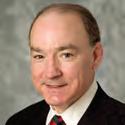

JD’75 of Seattle (civil litigation –defense) and Loren D. Podwill
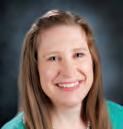
JD’84 of Hillsboro, Ore., (business litigation). Matthew C. Casey
JD’98 of Portland, Ore., was named to the publication’s list of Rising Stars for 2013 in the area of personal injury defense – products. Loren also has been re-elected to Bullivant’s board of directors for another three-year term, and is finance officer-elect for the American Bar Association’s Tort Trial and Insurance Practice Section, effective August 2013.
Super Lawyers magazine recently ran a nice feature on Paul L. Stritmatter JD’69 of Hoquiam, Wash. He has been named to the ranks of Washington Super Lawyers each year from 2003–13. Paul is in private practice, handling all manner of personal injury cases. He is past president of
the Washington State Bar and the state Trial Lawyers Association, and a founder and former president of the nationwide Public Justice Foundation.
1970s the
One year after forming his own firm devoted exclusively to the practice of alternative dispute resolution, attorney Jeffrey M. Batchelor JD’72 of Portland, Ore., has been named Best Lawyers 2013 Lawyer of the Year for mediation in the Portland area. Jeffrey has mediated hundreds of cases spanning many different areas of law, including business, personal injury and wrongful death cases; as well as contract, real estate and employment disputes.
Welcome back to Oregon!
William C. Tharp ’70, JD’73, of the Dalles, Ore., is sharing office space with his law school classmate James M. Habberstad JD’73 after recently making the move back to Oregon from Idaho. William practiced in Oregon from 1973–2005 before joining the Boise firm of Greener Burke Shoemaker Oberrecht PA as a partner. He focuses his practice on civil litigation.
Dean Browning Webb JD’76 of Vancouver, Wash., has authored a comprehensive textbook addressing the technical complexities of the federal RICO conspiracy law and the application of the Pinkerton doctrine. “RICO Conspiracy Law and the Pinkerton Doctrine”
was published by Xlibris Publishing, and details can be found at deanbrowningwebb.com.
Best Lawyers has named Mark F. LeRoux ’78, JD’82 of Portland, Ore., Lawyer of the Year in tax law for the Portland area. Mark is a partner at Tonkon Torp LLP, where he focuses his practice on federal, state and local tax matters — including taxation of corporations, partnerships and limited liability companies, as well as personal investments.
E. Walter Van Valkenburg JD’78 of Portland, Ore., has been elected to the Portland State University Foundation board of trustees. Walter is a partner in the Technology and Intellectual Property Group at Stoel Rives LLP.

1980s the
The National Center for State Courts honored Douglas M. Bray MBA’80, JD’86 of Lake Oswego, Ore., with the organization’s 2012 Distinguished Service Award. One of the highest honors bestowed by the center, it is presented annually to those who have made significant contributions to the justice system and who have supported its mission. Throughout his 40-year career with the Oregon Judicial Department, Douglas has served on numerous judicial committees, helping to improve the state’s administration of justice. He has worked as the court administrator in Multnomah County since 1991.
Motschenbacher & Blattner
LLP welcomed Gregory J. Englund ’78, JD’81 of Portland, Ore., to the firm as a partner. Gregory previously was with Hooper, Englund & Weil LLP. His business practice emphasizes representation of buyers and sellers in professional practice and business sales, transitions, contracts and entity formation.
Congratulations are in order for Richard Baroway JD’83 of Beaverton, Ore. Richard, a partner at Tomasi Salyer Baroway, recently received an Action Award from the Cascade AIDS Project for his more than 25 years of volunteer service to the organization. He has worked on the Oregon AIDS Hotline, assisted with the organization’s speakers bureau and provided pro bono legal services since 1988 — the value of which the organization estimates at more than $185,000.
A move from the Cougars to the Vandals for Sharon L. (Brown) Morgan JD’87 of Moscow, Idaho. Sharon recently joined the University of Idaho as senior director in the office of estate, trust and gift planning. She previously was a senior associate director in the gift planning office at Washington State University.
Reed E. Dinsmore JD’88 of Albany, Ore., retired from the Linn County district attorney’s office after 24 years at the end of June 2013. A native of California, he worked as a sheriff’s deputy in Los Angeles for several years prior to attending law school and settling
in Oregon. Best wishes on this new chapter, Reed!
Enjoying retirement is Linda J. Guss JD’88 of Portland, Ore. She retired from the Oregon Department of Justice after more than 24 years. Linda started as an assistant attorney general in the Family Law Section in 1988, and most recently served as one of three assistant attorneys in charge of the Portland office of the Child Advocacy Section. Congratulations on this milestone, Linda!
The Portland Business Journal named Coni S. Rathbone JD’88 of Lake Oswego, Ore., one of its 2013 Women of Influence in March 2013 and presented her with the Orchid Award. The honor is given annually to a select group of women for their outstanding business accomplishments and civil involvement. Coni is a partner at Zupancic Rathbone Law Group PC.
1990s the
Gordon & Rees LLP is pleased to announce that Nancy M. Erfle JD’90 of Portland, Ore., has joined the firm as a partner in the Tort and Product Liability Practice Group. Nancy brings 23 years of wide-ranging state and federal product liability litigation experience to the firm, focusing her practice on defending pharmaceutical and medical device manufacturers, automotive manufacturers, agricultural chemical manufacturers, aviation manufacturers
and companies involved in business disputes. She previously was with Schwabe Williamson & Wyatt.
The Community Foundation of the Klamath Basin has selected Heidi Neel Biggs JD’92 , a native of Klamath Falls, Ore., as its first executive director. Prior to joining the foundation, Heidi led a grass-roots public policy campaign in Washington, D.C., working with think tanks, advocacy groups, the White House and members of Congress.
Gov. John Kitzhaber appointed Robert W. Patridge ’90, JD’93 of Medford, Ore., to the position of Klamath County district attorney in April 2013. “Rob has the skills and experience to bring communities together and serve the people of Klamath County well,” said Gov. Kitzhaber. In addition, the four sitting citizen commissioners of the Oregon Liquor Control Commission unanimously elected him interim chair of the OLCC in July 2013. He was appointed to the commission in 2012.
Making a move to the bench is Heather L. Karabeika JD’94 of West Linn, Ore. Gov. John Kitzhaber appointed Heather to the Clackamas County Circuit Court in April 2013. She brings to her new role extensive trial experience, having worked as a deputy district attorney and indigent defense attorney in Clackamas County. She also handled civil matters and has previous experience as a municipal court judge in West Linn. Congratulations, Heather!
Michael A. Moberly JD’95 of Anchorage, Alaska, is currently serving as president of the Alaska Bar Association Board of Governors. Michael is in private practice with Hozubin & Moberly, where he focuses his practice on criminal defense and plaintiff personal injury cases.
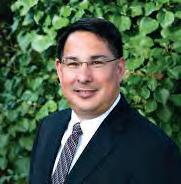
The Portland real estate and land use firm of Radler
White Parks & Alexander LLP is pleased to announce that one of the firm’s founding members, Dina E. Alexander JD’96 of Lake Oswego, Ore., has been named a fellow of the American College of Mortgage Attorneys. She is only the fifth Oregon attorney, and one of roughly 400 attorneys nationwide, to be admitted to the ACMA. Dina is a member of the firm’s corporate and real estate practice groups. Since 1999, she has dedicated a substantial portion of her professional time to the area of real estate finance.


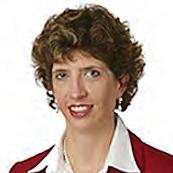
Laura Caldera Taylor JD’99 of Lake Oswego, Ore., has been elected to The Fellows of the American Bar Foundation. The foundation is an honorary organization of lawyers, judges and legal scholars whose careers have demonstrated outstanding dedication to the welfare of their communities and to the highest principles of the legal profession. Membership is limited to one-third of one percent of the lawyers licensed to practice in
each jurisdiction of the United States. Laura also will bring her experience in litigation and intellectual property to two committees of the American Bar Association’s Tort Trial and Insurance Practice Section. She will serve as vice-chair to the section’s professional officers and directors liability general committee, and as vice-chair to the section’s intellectual property general committee. Laura’s term begins in August 2013. She is a shareholder at Bullivant Houser Bailey in Portland.
20 00s the
Tonkon Torp LLP announces that Tatiana A. Perry JD/C/ MBA’00 of Portland, Ore., has earned designation as a certified information privacy professional for the United States. The credential demonstrates a strong foundation in U.S. privacy laws, principles and best practices, as well as a thorough understanding of the legal requirements for responsible transfer of sensitive personal data to and from the United States, the European Union and other jurisdictions.
Christine R. Costantino JD’01 of Portland, Ore., has joined Samuels Yoelin Kantor as a partner. She will continue to focus her practice on legal issues involving families and family-owned businesses, as well as contested guardianships and conservatorships and trust litigation.

Jordan Ramis PC is pleased to announce that James D. Howsley JD’01 of Vancouver, Wash., was named a Rising Star by Washington Super Lawyers James is a shareholder at the firm, where he focuses his practice on land use and zoning, environment and government relations issues.
On March 20, 2013, Juan Aguiar JD/MBA’02 of Quito, Ecuador, presented the Legal Aspects and Bid Selection Sections of Ecuador’s southeastern oil bidding round road show in Singapore. Juan also offered a videoconference presentation for the oil and investment law class at the University of Houston about various aspects of Ecuadorian law and hydrocarbon contracting.
There’s a new firm in town … Adina Matasaru JD’03 of Portland, Ore., joins Jay Chock and John Barhoum to form the litigation firm of Chock Barhoum LLP. Adina’s practice concentrates on civil litigation, insurance defense, malpractice defense and contract interpretation.
Dennis E. Koho JD/C’04 of Keizer, Ore., has accepted appointment as president of baseball’s West Coast League.
(See full story on page 32.)
The Seattle firm of Karr Tuttle Campbell has named Celeste M.
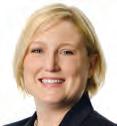

(Mountain) Monroe JD’04, a shareholder. Celeste is a member of the firm’s litigation group. She represents businesses and
individuals in a wide range of litigation matters, including commercial disputes, breach of contract claims, employment disputes and insurance coverage cases. She handles cases at both the trial court and appellate levels throughout Oregon and Washington. Celeste lives in Edmonds, Wash., with husband Justin M. Monroe JD’04 and their two daughters.
Sabrina L. Axt JD’05 of Clayton, Calif., has joined the toxic tort practice at Archer Norris in Walnut Creek, Calif. She previously practiced with Foley & Mansfield and Hawkins Parnell Thackston and Young LLP.
Polk County District Attorney Aaron D. Felton JD’93 named Mathew L. Jarvis JD’06 of Salem, Ore., to the position of chief deputy district attorney in February 2013. Since joining the district attorney’s office in 2011, Mathew has prosecuted numerous Measure 11, narcotics and serious property crime offenses. Prior to joining the Polk County district attorney’s office, he worked as a deputy city attorney and city prosecutor in Albany, Ore.
Alaska native Leila R. Kimbrell JD’06 of Washington, D.C., has an exciting new post with fellow Alaska native and U.S. Senator Lisa A. Murkowski JD’85 Leila joined Sen. Murkowski’s Washington D.C. staff as a legislative assistant, where she will focus on economic policy.
Eleanor A. DuBay JD’07 of Beaverton, Ore., has been admitted to the Idaho State Bar and the U.S. District Court for the District of Idaho. Eleanor is
with Tomasi Salyer Baroway in Portland, where she focuses her practice on representing lenders and secured creditors in consumer and commercial real estate foreclosures, troubled debt restructuring, loan workouts, bankruptcies and general civil litigation.
It’s been an eventful spring and summer for Bryana L. (Sack) Blessinger JD’08 of Beaverton, Ore. In addition to welcoming baby Zoe just this month, she joined the Portland firm of Hill & Lamb LLP in the spring. Bryana practices civil litigation in Oregon and Washington courts, handling complex insurance coverage matters, as well as employment law, professional negligence, construction defect, premise liability and general commercial litigation claims. She previously was with Bodyfelt Mount. Stateside Associates, the government affairs consulting firm based in Arlington, Va., has promoted Sarah E. Hunt JD/C’08 of Washington, D.C. to manager, state issues. She previously was regulatory counsel for the firm.
Zupancic Rathbone Law Group PC has added Sean M. Mazorol ’07, JD/MBA’11 of Portland, Ore., to the firm as an associate. His practice includes litigation, and business and real estate transactional work. Sean previously was a special misdemeanor prosecutor with the Multnomah County district attorney’s office.

Katherine H. Denning JD’12 of Salem, Ore., joined the firm of Sherman Johnnie & Hoyt LLP

earlier this year. She focuses her practice on family law issues, but also assists the firm with its general business, real estate and banking law matters.
Stahancyk Kent & Hook PC is pleased to welcome Laura R. Franzen JD’12 of Portland, Ore., to the firm as an associate. Laura will focus her practice on family law issues. She previously worked at Bocci & Associates in Salem.
Collier Law added Stephanie M. Palmblad ’09, JD’12 of Salem, Ore., to the firm as an associate in the fall of 2012. She focuses primarily on estate planning and litigating trust and probate matters. The firm also is general counsel for the Cherry City Derby Girls, Salem’s very own roller derby league.
The Jackson County district attorney’s office has named Alisa N. Ray ’03, JD’12 of Medford, Ore., a deputy district attorney. In her new role, Alisa will handle misdemeanor issues such as DUIIs as well as animal abuse cases.
Weddings
Hayley J. Stevens JD’08 married Nate Talbert in Seattle, Wash., on April 14, 2012. She is an attorney at Seed Intellectual Property Law Group PLLC. Cheers Hayley and Nate!

Additions
Robert W. Dengel JD/C’07 of Olympia, Wash.,

writes: “I am proud to announce John Phillip Dengel Caviedes, born Jan. 8, 2013 in Olympia, Wash.” Rob and wife Adriana Caviedes are enjoying their 9.25 lb. sweet baby boy. Congratulations Rob and Adriana!
Whoa, baby! Catherine (Kauffman) Dobbs JD’07 of Edgewater, Md., and husband Brian welcomed daughter Carrie Vi on Oct. 11, 2012. Says mom, “Carrie is an absolute delight, and has convinced [us] to try for a sibling as soon as possible. Yay for babies.”
A darling girl named Zoe Grace has arrived!
Bryana L. (Sack) Blessinger JD’08 and husband Patrick D. Blessinger JD’07 of Beaverton, Ore., welcomed their daughter on July 15, 2013. Photo by Erin Tole Photography.
Hello baby Robinson!
Rachel A. (Crocker) Robinson
JD’08 and husband Blake J. Robinson JD’08 of Portland, Ore., welcomed daughter Claire Emily on Dec. 22, 2012.


Baby Ariana was born on Oct. 15, 2012, to proud parents Cpt. Kattarina (Horn) Simons
JD’08 and husband Maj. Matthew Simons. Writes Kattarina, “The family is serving in the U.S. Army in Germany, and Maj. Simons deployed to Afghanistan in July 2013.”
More than 400 alumni of the College of Law live and practice in California, and there is perhaps no greater concentration of alumni in the state than that found along the north coast. The Willamette University College of Law produced the Mendocino district attorney, C. David Eyster JD’83 of Ukiah, Assistant District Attorney Paul D. Sequeira JD’84 of Petaluma, and Deputy District Attorney Matthew J. Hubley JD’04 of Ukiah.
The common thread of Willamette strengthens the work bond for the prosecutors. “We understand without a doubt where we’re from and what we learned,” explains Matthew.
David builds on that sentiment, saying, “When Willamette is mentioned, the respect for the
Thank you for your service, Simons family, and congratulations on your sweet girl.

In Memoriam
Caroline (Duby) Glassman
JD’44, H’94 of Cape Elizabeth, Maine, died at age 90 on July 10, 2013, after a brief illness. Caroline was a trailblazer, becoming the first woman appointed to the Maine Supreme Judicial Court in 1983. Raised on a cattle ranch in eastern Oregon, an unflinching, innate sense of justice drove her to choose law.
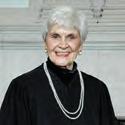
college is immediate.” He credits his time at the College of Law for setting the stage for a legal career that has drawn notice across the West.
In addition, former U.S. Rep. Douglas H. Bosco ’68, JD’71 of Santa Rosa and former Mendocino County District Attorney Duncan M. James JD’65 of Ukiah are graduates of the College of Law. Only 11 years after graduation, Douglas defeated a 20-year Republican incumbent to launch a four-term congressional career. He has remained active in political and legal circles in the North Bay, and is legal counsel for The Press Democrat newspaper in Santa Rosa.
In his era, Douglas says, Willamette had a very nurturing environment. “You could relate closely with instructors, get a good solid education and still have a lot of fun,” he says. “Much of my presentday happiness was formed by the education I got at Willamette and the friendships I made.”
This small sampling of our esteemed alumni practicing in the public sector shows just how wellrepresented the College of Law is in this region of the state. We are proud of our alumni doing good work in the state of California, and beyond!

With thanks to Mike Geniella of the Mendocino County district attorney’s office. Photo by Jendi Coursey.
Caroline was a law student at Willamette when the Japanese bombed Pearl Harbor and the United States entered into World War II. The impact of that event ultimately gave shape to her legal career. “The families of some of my Japanese American classmates were mandated to camps out of state,” she explained. “The occurrences had a profound effect on my own beliefs relative to justice under the rule of law. I wanted to use my skills to help others and to influence the changing of laws inconsistent with justice and enact laws in furtherance of justice.”
Caroline worked as a waitress to put herself through law
school, and graduated summa cum laude. Despite this, she was offered only a legal secretary position after passing the bar in Oregon. She eventually went to work for a title insurance company before being hired by the San Francisco litigation firm of Melvin Belli.
She and her husband, Harry P. Glassman, moved in 1963 to Maine, where she practiced law before becoming an associate justice on the Maine Supreme Judicial Court. She held her seat for 14 years and remained a tenacious proponent of access to justice issues throughout her distinguished career.
She is survived by her son, Max.
JD’58 of Fairbanks, Alaska, died June 8, 2013, at 80. Ronald attended the University of Oregon and remained a lifelong fan of Duck athletics. After graduating from the College of Law, he practiced law in Medford for a time before moving to Fairbanks to become a trust officer at Alaska National Bank of the North. He worked his way up to president and CEO of the bank and, in 1988, made the move to CEO of the Fairbanks Industrial Development Corporation. He served on the board of the Salvation Army, was active in the Fairbanks Downtown Rotary Club, served on the board of the Fairbanks Golf Club and was a volunteer member of the National Ski Patrol. His friends and family remember his great laugh and the twinkle in his eye when telling a good story. He is survived by wife Beverly, nine children, 20 grandchildren and four great-grandchildren.
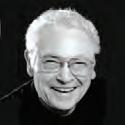
After fighting a long illness, Lewis E. Myatt
JD’60 of Newberg, Ore., died June 26, 2013, at 79. A star football player in his high school years and a U.S. Marine during the Korean War, Lewis went on to receive his law degree from Willamette and practice law in Beaverton for 47 years. He was a blessing to many families, having arranged for several adoptions during the course of his career. In addition to his practice, he served on many boards over the years, including the board of the Washington County Dental Association. He was past president of the Beaverton Rotary Club and was recognized as a Rotary Foundation Paul Harris Fellow. To his close friends and family, he will be remembered for his great sense of humor. Lewis is survived by his wife of 59 years, Myrna; sons Mike and Matthew and their spouses, and his beloved grandchildren and great-grandchildren.
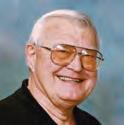
Class Action Contact Submit information for Class Action to: Cathy McCann Gaskin, Associate Director of Alumni Relations, at wu-lawyer @ willamette.edu or via mail at Willamette University College of Law, 245 Winter St. S.E., Salem, OR 97301.
Please print or type all submissions. Please submit a brief summary of the original piece if sharing something printed in another publication about you.
Submission deadlines are Jan. 15 for the spring issue and July 15 for the fall issue.
Richard T. KroppJD’62 of Newport, Ore., died peacefully at home surrounded by his family on April 9, 2013, at 75. Richard was born in Albany, Ore., in 1937, and lived and worked in that community until his retirement in 1997. Richard graduated at the top of his law school class, already having argued more cases in court that many of his classmates would during their lifetime. A consummate professional, he arrived at the office early, worked late and selflessly served his clients. He was committed to the improvement of the Oregon State Bar, and served on various committees and in various leadership roles with the bar over the years. He is survived by his wife of 56 years, Helen; his mother, three daughters and several grandchildren.
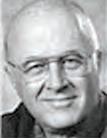
Mark A. Pelak JD’73 of Kingston, Pa., died July 7, 2013, at 65. He was stricken ill while bicycling. Mark began his career as a staff attorney for Legal Services of Northeastern Pennsylvania. He made the move to
the Wilkes-Barre firm of Winkler Danoff and Lubin in 1976, and was appointed as a Commonwealth of Pennsylvania workers’ compensation judge in 1980. His greatest satisfaction as a lawyer and a judge was helping people, and he will be remembered for his compassion, common sense and unwavering commitment to doing the right thing. An avid bicyclist, Mark always looked forward to his Saturday morning rides with his mates from Around Town Bicycles. His greatest joy was his family. He is survived by wife Anne, with whom he would have celebrated 40 years of marriage in August, and daughters Mary Elizabeth and Amy Justine. We’re sorry to report that Vance M. Wolfe JD’74 of Seattle, Wash., died April 16, 2013, at 69. After serving in the U.S. Air Force as a signals intelligence officer, Vance attended the Willamette University College of Law. He was a loyal, devoted family man who enjoyed many interests, ranging from cooking and history to travel and the outdoors. He is survived by his wife Betty, sons Vance and Stewart, mother Rosemary and sister Kathy.
and publication dates. Willamette Lawyer reserves the right to edit or omit any information submitted.
We welcome photographs, depending on space and photo quality. Please note if you would like your photo returned.
Editorial Contact Direct comments, suggestions and reprint requests to the Willamette Lawyer at Willamette University College of Law, 245 Winter St. S.E., Salem, OR 97301.
Job Listings If you have a position opening, please contact the Career and Professional Development Center. They will accept job postings or accommodate on-campus interviews at any time. For more information contact Bev Ecklund at becklund@willamette.edu. Phone: 503-370-6057 Key JD Doctor of Jurisprudence. L Non-degreed. LLB Bachelor
Pregnancies, engagements, and candidacies for political offices will not be published due to the lag time between receiving such information
LLM Master of Law. MM Master of Management, Master of Administration. MBA Master of Business Administration. H Honorary degree. C Certificate in Dispute Resolution, International and Comparative Law, Law and Government, Law and Business, or Sustainability Law. BA Bachelor of Arts. BS Bachelor of Science
Law (equivalent of
1972 Reunion
Members of the class of 1972 gathered at Salishan Resort in Gleneden Beach, Ore., for a weekend of catching up (and perhaps a little golf, too) on July 19–21, 2013.



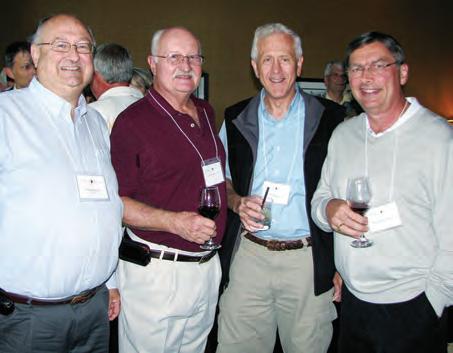
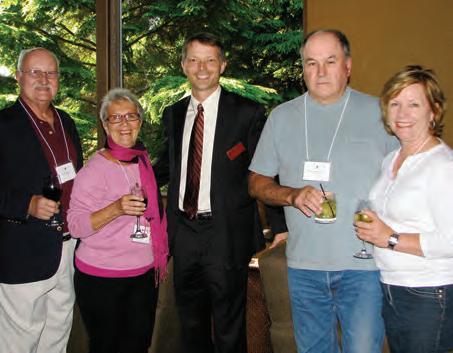
1973 and 1983 Reunions
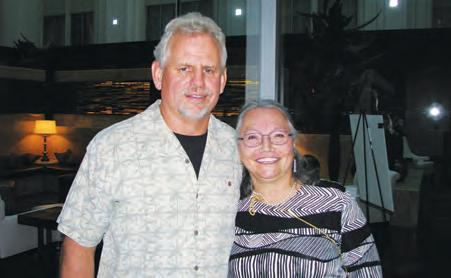
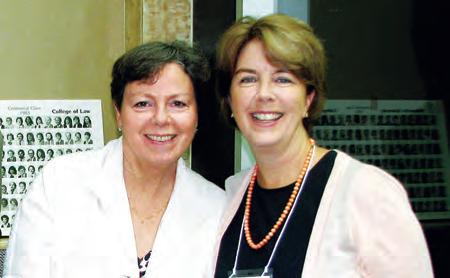
Members of the classes of 1973 and 1983 gathered at The Nines Hotel in Portland, Ore., on July 20, 2013.
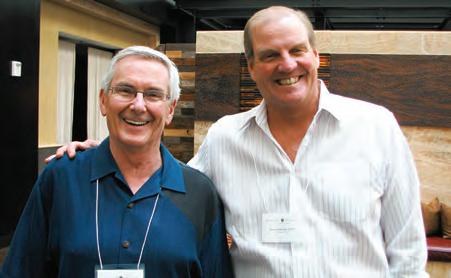



How Your gifts add up
One $5,000 Gift: Provides a scholarship to help offset tuition for one year.
Two $2,500 Gifts: Support a student’s practical education in the Clinical Law program.
Three $1,000 Gifts: Fund three bar prep scholarships to help offset the course cost.
Four $500 Gifts: Allow four students to attend a national moot court competition.
Five $100 Gifts: Cover the cost of up to three law textbooks.
Your gift of any size will add up to a huge difference in the lives of students like Sarah de la Cruz, an outstanding student and a law clerk for the Oregon Law Commission, whose scholarship was made possible by the generosity of alumni like you. Help shape their futures and the future of your College of Law.

You
Your dollars provide crucial and direct support to our law students.
Make a difference when you make a gift to the law annual fund





